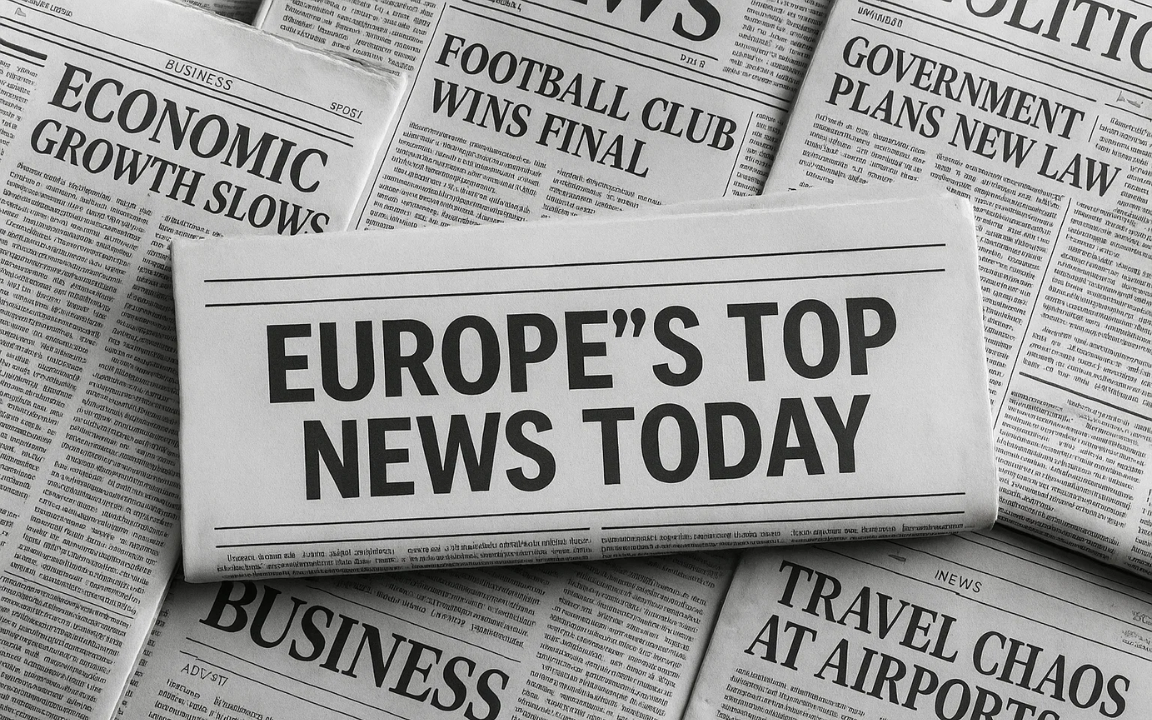Europe bulletin: France’s political turmoil, big bank deals, and US-EU clamp down

European developments today highlight mounting political and economic tensions. France faces potential government collapse as Prime Minister Bayrou confronts a no-confidence vote, while Spain’s BBVA pursues a €14.8 billion acquisition of Sabadell bank.
Britain intensifies its crackdown on human trafficking networks, and transatlantic partners coordinate expanded sanctions against Russia over Ukraine.
Here’s a glance at the top events in Europe on 8th September.
France on political brink
France is heading for another political meltdown as Prime Minister François Bayrou looks set to get booted from office after just nine months of gridlock.
His minority government has been stuck in neutral since December, unable to pass anything meaningful as opposition parties and even coalition partners refuse to play ball.
The no-confidence vote looming over Bayrou is being called a “moment of truth” that could collapse his entire administration.
Political observers say this is one of the worst legislative deadlocks France has seen in decades, and frankly, voters are getting tired of the constant government chaos.
The big question is whether whoever comes next can actually break through this impasse or if France is just going to keep cycling through prime ministers who can’t get anything done.
The next few weeks will probably determine whether French politics can find some stability or if this legislative paralysis becomes the new normal.
What makes this particularly concerning is France’s role in European and global affairs as when a major EU power can’t govern effectively, it creates ripple effects beyond their borders.
BBVA targets Sabadell takeover
BBVA just pulled the trigger on its €14.8 billion hostile takeover of Banco Sabadell, giving shareholders until October 7 to decide whether to tender their shares.
The offer is one BBVA share plus €0.70 cash for every 5.5483 Sabadell shares, but there’s already a problem as Sabadell’s stock has risen above the bid price as investors bet on a higher offer.
If successful, this would create Spain’s second-largest domestic bank with nearly €1 trillion in assets.
The Spanish government isn’t making things easy, though, blocking any full merger for at least three years as a condition of approval.
BBVA insists they won’t raise their bid, but analysts think they’re probably going to have to sweeten the deal to get enough shareholders on board.
With Sabadell trading above the offer price, the market is clearly expecting either a higher bid or the deal to fall apart entirely.
UK strengthens fight against smuggling
New UK Home Secretary Shabana Mahmood is hosting a Five Eyes security meeting with the US, Canada, Australia, and New Zealand to tackle people smuggling operations.
The gathering focuses on strengthening international cooperation on border security and communication intelligence to target smuggling networks more effectively.
Mahmood, who was just appointed during the recent cabinet reshuffle, wants to build collaborative defenses against increasingly sophisticated smuggling operations.
She’s also threatening to suspend visas for countries that won’t cooperate on migrant return agreements, showing the government is willing to use diplomatic pressure.
Defence Secretary John Healey is planning to expand military facility use for housing asylum seekers, trying to get people out of expensive temporary hotels.
The multi-pronged approach shows the UK is serious about controlling irregular migration through both international partnerships and domestic policy changes.
The Five Eyes alliance meeting highlights how complex migration has become a shared security challenge requiring coordinated responses.
US, EU coordinate new Russia sanctions
EU and US officials are all set to convene in Washington this week to coordinate a fresh wave of sanctions against Russia over its Ukraine invasion.
The European Union’s 19th sanctions package targets Russian banks, energy companies, oil trading operations, and shadow fleets, circumventing existing penalties.
EU Sanctions Envoy David O’Sullivan is spearheading discussions with American counterparts to strengthen transatlantic coordination.
Treasury Secretary Scott Bessent urged European allies to adopt America’s more aggressive approach, suggesting intensified pressure could trigger Russia’s economic collapse and compel Vladimir Putin toward negotiations.
The talks gained urgency following Russia’s most devastating air assault on Ukraine since the 2022 invasion began.
Even President Trump signaled support for additional sanctions, reflecting a broad Western consensus on escalating economic warfare to end the conflict.
The post Europe bulletin: France's political turmoil, big bank deals, and US-EU clamp down appeared first on Invezz



